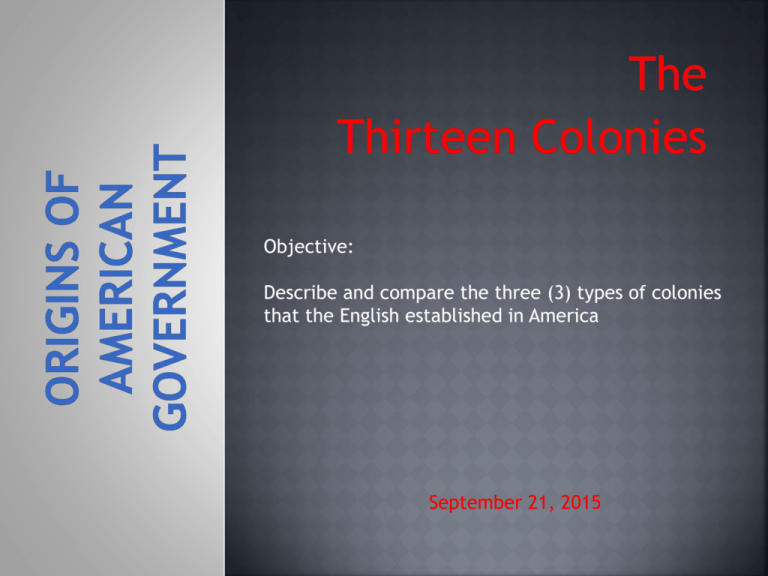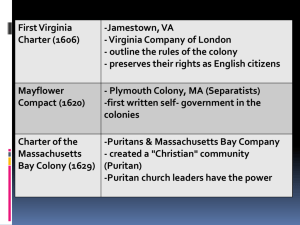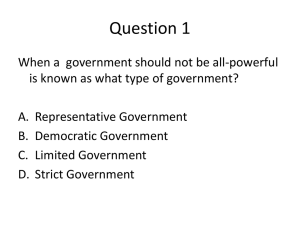Types of Colonies
advertisement

The Thirteen Colonies Objective: Describe and compare the three (3) types of colonies that the English established in America September 21, 2015 Basic Concepts Vocabulary Charter – written grant of authority from the king Unicameral – one house legislative body Bicameral – two house legislative body Royal Colony Colonies that were subject to the direct control of the Crown Georgia Massachusetts New Hampshire New Jersey New York North Carolina South Carolina Virginia Proprietary Colony Colonies that were organized by a proprietor, to whom the king had given a grant of land Land was settled and governed as the proprietor chose Maryland 1632 Pennsylvania 1681 Delaware 1682 Charter Colony Colonies that received a charter from the king and were allowed to settle and govern as they wished Connecticut 1662 Rhode Island 1663 * Massachusetts 1629 *Became a Royal Colony in 1691 Charter Colony Colonies that received a charter from the king and were allowed to settle and govern as they wished Connecticut 1662 Rhode Island 1663 * Massachusetts 1629 *Became a Royal Colony in 1691 Formation of the first governments of the 13 colonies Highly influenced by: - English law - English tradition - English religion (mix of Catholicism and Protestantism) Influences on the governments of the 13 colonies Hebrews - Ten Commandments - laws based on morals Greeks - Direct Democracy - everyone participated directly (smaller society) Romans - Classical Republic - elect people to represent - people practice “civic virtue” - promotion of the common good - moral education





